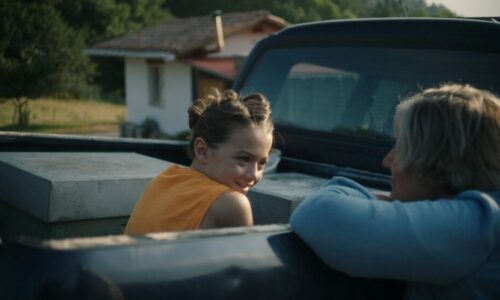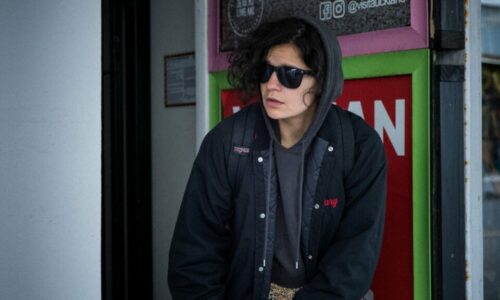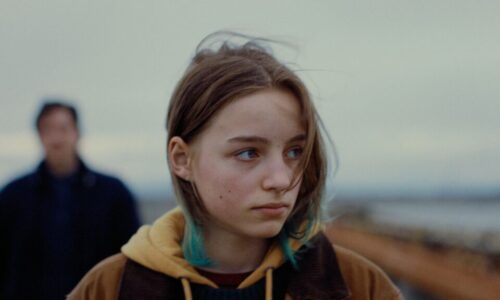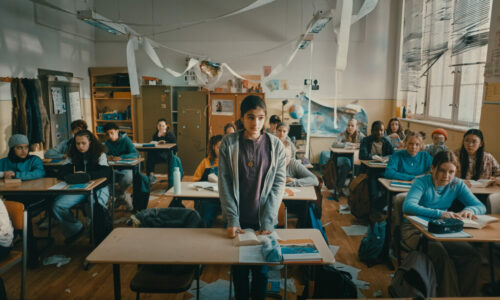Titel: Las niñas | Schoolgirls | Mädchen
The girls are all lined up in a girls’ choir of a Catholic girls’ school. A nun teaches them all, including Celia. She is banned from singing, along with a few other girls. They are just supposed to continue quietly with mouth exercises. Soon she becomes aware of the predominant austerity of this school where the girls spend their everyday life. When the new student Brisa (Zoé Arnao) from Barcelona joins the class, she not only brings a new wind into the classroom, but creeping changes in Celia’s world view begin. The growing friendship with Brisa makes Celia increasingly question things, making her more rebellious. She begins to discover new music and goes to a club with her friends for the first time to dance and of course the first experiments with alcohol are not to be missed, although with a lot of caution. And of course the growing interest in her own body and its associated appearance also plays a growing role. Also at her home these changes and new desires do not pass her mother completely without a trace. She wishes for new clothes like Brisa is wearing, but she is always put off until the next month.

She also begins to question her origins, wants to know what really happened to her father. This desire is fuelled above all by the fact that her clique talks about rumours concerning her mother. All these sudden changes don’t pass the school without leaving a trace, because the nuns have her under observation, especially after one of them saw her riding a motorcycle with a strange boy after her evening club visit. Promptly the mother was called to inform her about her daughter who was roaming around. The next morning, as a clearly noticeable punishment, she was called to the blackboard to solve a math problem, which she could not do. For this she immediately received a denunciation from the teacher in front of the whole class. But this does not stop Celia from rebelling against the school system again at the next opportunity together with Brisa and her mother also realizes that her daughter is no longer a child. In the end Celia has gathered so much strength that she breaks the circle and with visible pride she manages to do what she was granted at the beginning of the film.

Conclution:
This film as a whole has already moved me a lot. I was able to put myself in Celia’s shoes surprisingly well and every step she took forward was like throwing off a big load. In spite of the strictness that prevailed in the girls’ school, she always found the strength and her own unique ways to jump over her own shadow and increasingly to fight against a rather questionable value system of the 90s (the time the film is set in) in Spain. I was especially impressed by a scene that took place in the confessional. She was asked by the priest to put away her sins, but she does not reveal them. In return, after a short silence out of the blue, she asks the question why you have to be married to have a child. But exactly these are the values that they wanted to teach the girls again and again until contraception was something immoral, just in the sense of the Catholic faith.
Actors:
- Andrea Fandos (Celia)
- Natalia de Molina (Celias Mutter)
- Zoé Arnao (Brisa)
- Julia Sierra (Cristina)
- Francesca Piñón (Mutter Consuelo)
- Ainara Nieto (Clara)
- Elisa Martinez (Leyre)
- Carlota Gurpeguí (Vanessa)
- Jesusa Aldany (Mutter Magdalena)
- Mercé Mariné (Celias Großmutter)
Director:
Pilar Palomero
Information about the film including a short film excerpt:
https://www.berlinale.de/en/programm/programm/detail.html?film_id=202011636





